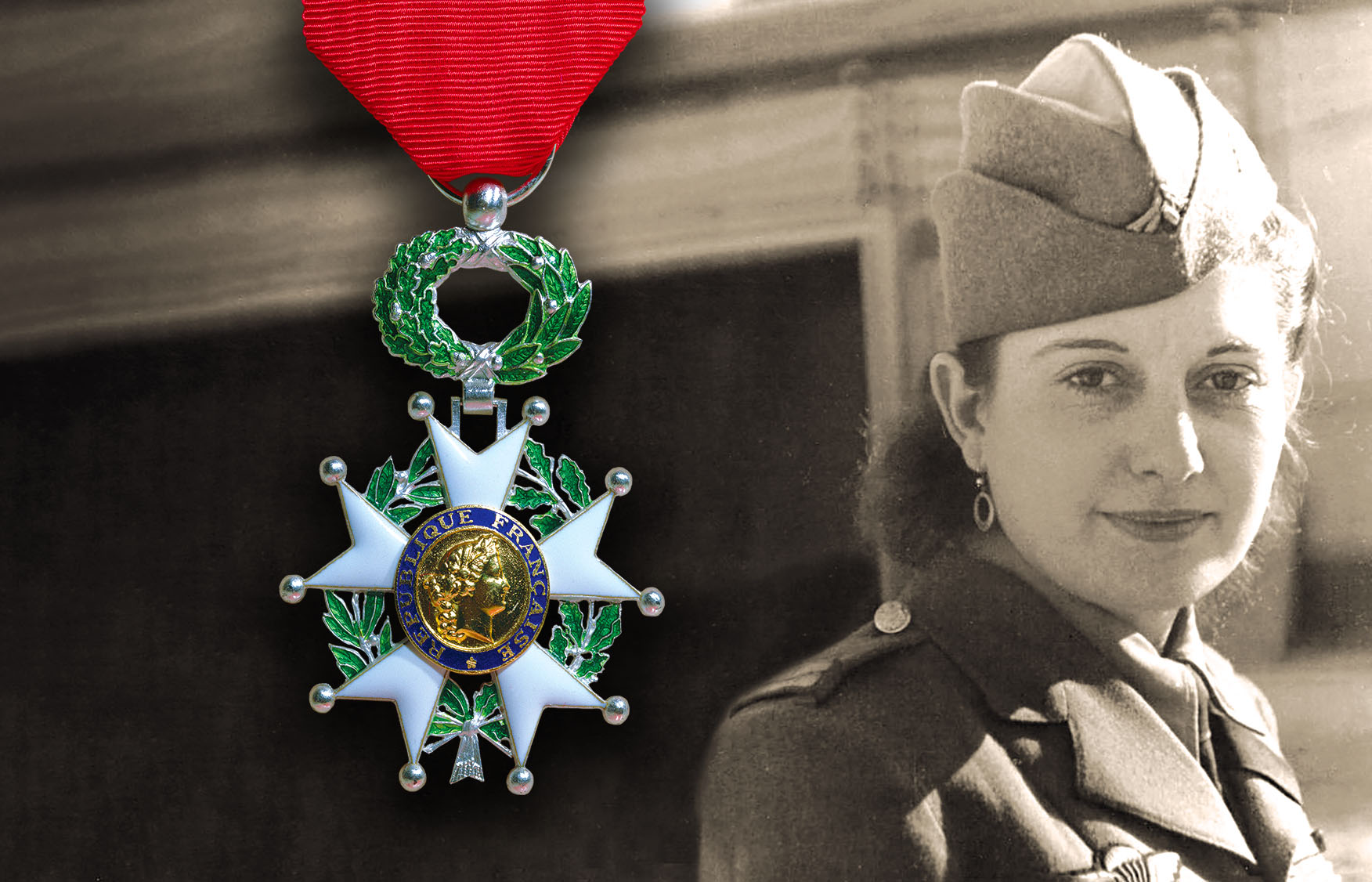When 97-year-old widow Jeannette Guyot passed away on April 10, 2016, in Chalon-sur-Saône, a town of 50,000 in eastern France, few neighbors knew of the heroic life the unassuming old woman had led 75 years earlier.
Guyot was a chevalier of the Légion d’honneur and a recipient of her nation’s Croix de guerre. Britain had presented her a George Medal for “acts of great bravery.” She was also one of only two women awarded the U.S. Distinguished Service Cross for “extraordinary heroism” during World War II.
Indeed, Guyot was among the most decorated Allied agents to have operated in German-occupied France. Early in the war, she’d been arrested, imprisoned and withstood three months of interrogation. Yet after her release, the fearless young patriot insisted on returning to France to resume the fight.
Guyot was born in Chalon-sur-Saône on Feb. 26, 1919. Her father, Jean-Marie, was a timber merchant who, when the Nazis invaded, joined the underground Forces françaises combattantes (FFC). Arrested in 1943, Jean-Marie was deported to Germany in early 1944 and died in Bavaria. Jeannette did not learn of his death until after the August 1944 liberation of Paris. Her mother, Jeanne, also an FFC member, was arrested 10 days after her husband. Deported to Germany’s Ravensbrück concentration camp, she survived the war to be reunited with her daughter.
At the outset of the occupation, the 22-year-old Jeannette, then living with her parents, also joined the Resistance. Her hometown, 70 miles north of Lyon, was near the demarcation border between occupied France and the “free zone” of Vichy. Guyot held a German-issued identity card (Ausweis) that allowed her to travel freely. She initially worked as a courier-guide, conveying covert messages and escorting refugees and intelligence agents across the Saône River into Vichy.
In August 1941, Guyot joined the Paris-based Confrérie Notre-Dame network, led by Gilbert Renault, alias Colonel Rémy. There she continued her courier work and served as Rémy’s liaison officer. In February 1942 she was arrested. Though subjected to three months of interrogation by the Gestapo, Guyot maintained her cover story and was ultimately released. Though stripped of her Ausweis, she remained a courier until the network was betrayed.
Fleeing to Lyon, Guyot continued working for the Resistance until the November 1942 German occupation of Vichy. On the night of May 13, 1943, a Westland Lysander of the Royal Air Force’s No. 161 (Special Duties) Squadron glided down to land in a pasture in central France, and Guyot and two comrades hurriedly climbed aboard.
On landing in Britain, Guyot joined the Free French Forces. Reunited with her former network chief, she worked for Rémy in London for the latter half of 1943. Yet she resolved to return to France as an agent and in preparation earned her jump wings and received further intelligence training. On the night of Feb. 8–9, 1944, she parachuted into France from an RAF bomber.
Guyot had returned home as part of Operation Sussex, whose four-member teams were dropped behind German lines to conduct intelligence missions ahead of D-Day.
In Paris, Guyot installed the team’s radio operator in a room above the Café de l’Electricité, owned by her cousin and next door to a Gestapo office. (The eatery, at 8 Rue Tournefort, remains in business as Café des Sussex.) Operating across northern France, she spent eight months behind German lines, setting up drop zones and safe houses, until the Allied advance overran the team’s area in October 1944.
Guyot ended all connections with the military and intelligence services shortly after the war. Her only remaining tie with her wartime past was her husband, Marcel Gaucher, a fellow former Sussex agent. MH
This article appeared in the September 2020 issue of Military History magazine.






